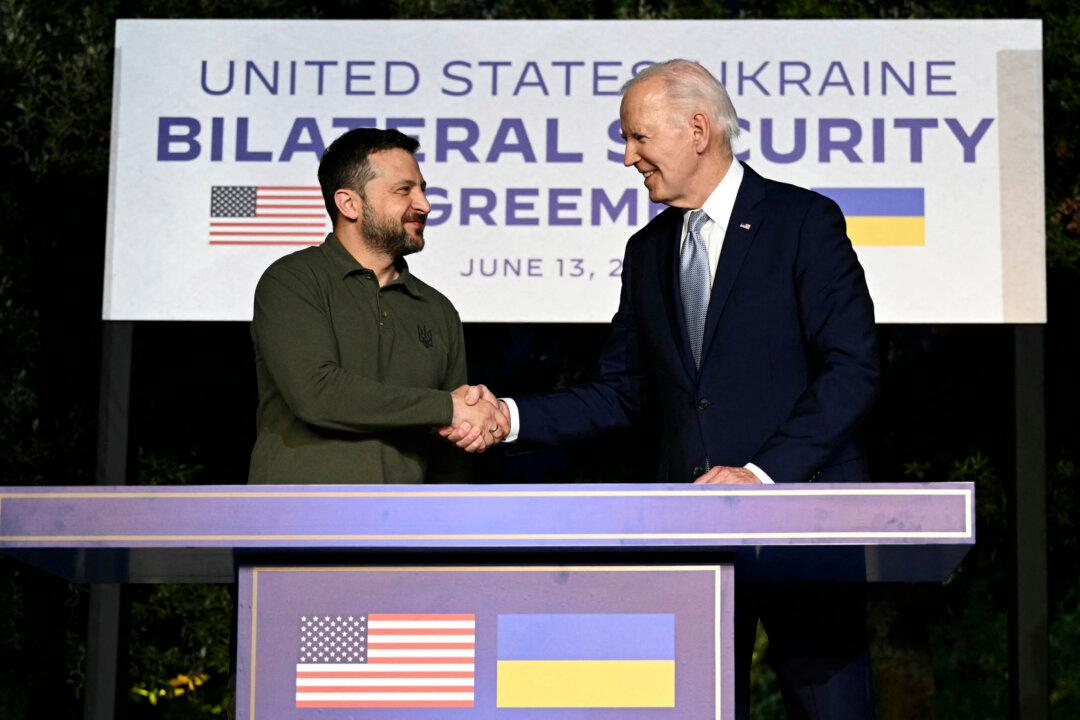PUGLIA, Italy—President Joe Biden signed a 10-year bilateral security agreement with his Ukrainian counterpart, Volodymyr Zelenskyy, on June 13, signifying a continuing U.S. commitment to support the war-torn country against Russian aggression.
The two leaders signed the agreement on the sidelines of the Group of Seven (G7) summit in southern Italy. It includes a U.S. commitment to bring its military cooperation with Ukraine up to NATO standards and help accelerate its transformation into a nation befitting its goal to join the European Union.






